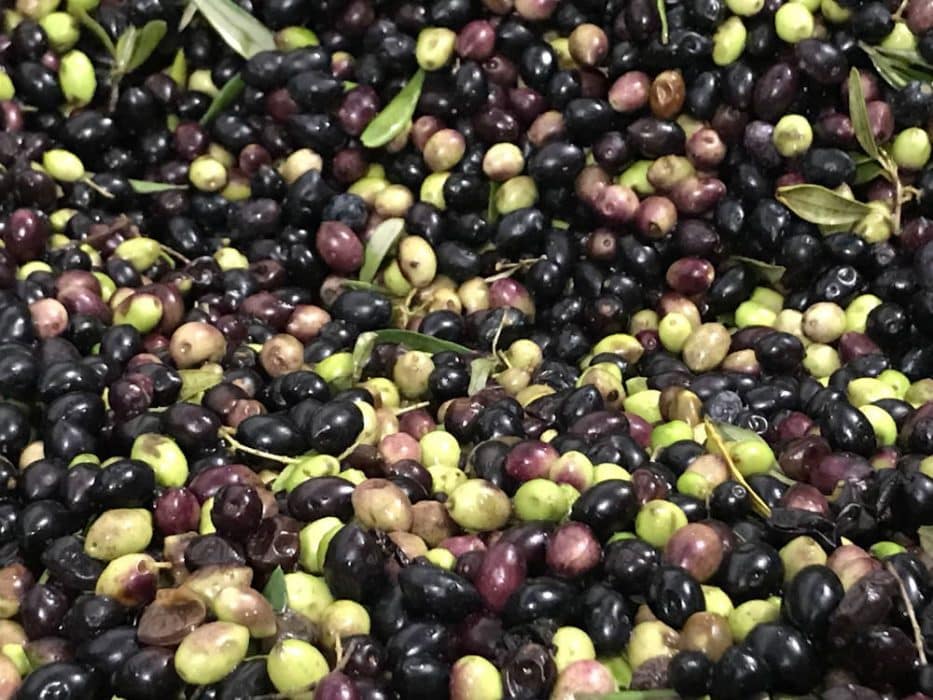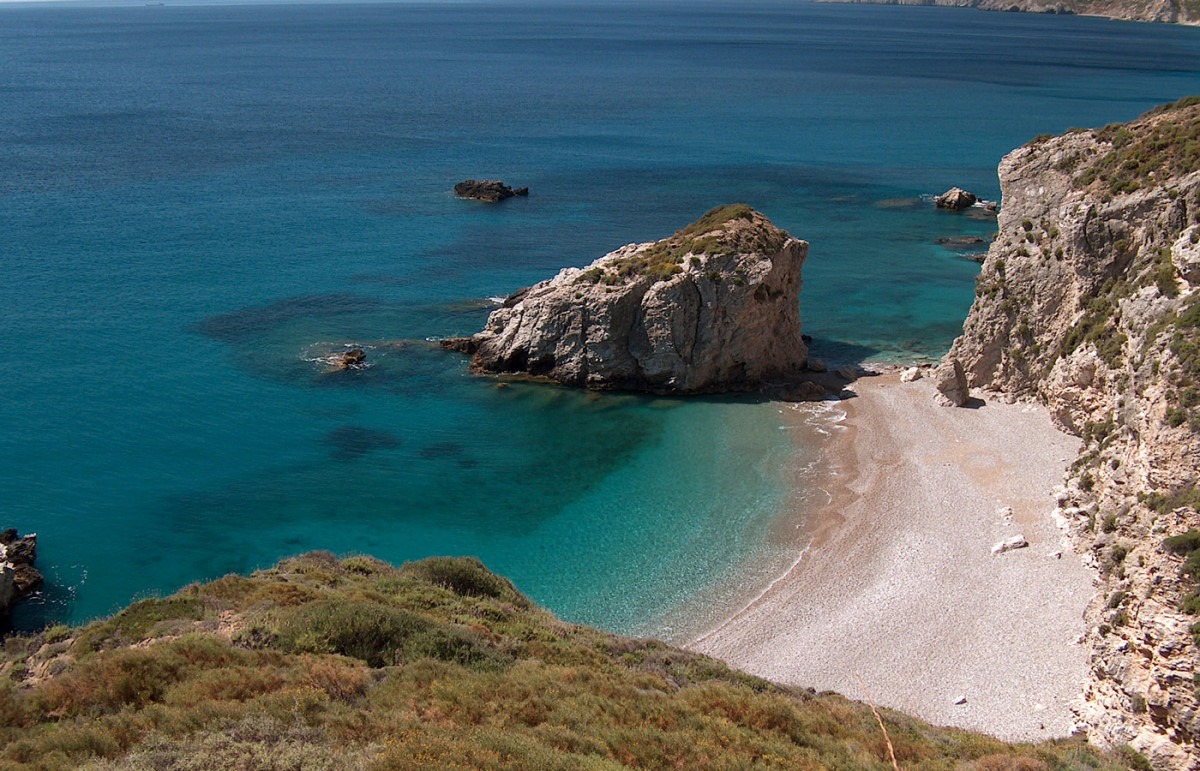Agriculture, Livestock and Agricultural Products
Agriculture and livestock breeding were the two main occupations of the Kytherean people over the past centuries, despite Kythera’s barren land which never produced large agricultural outputs. Most of the land was cultivated and at one point the number of inhabitants on the island ranged between 13,000 and 15,000. Today, there are very few lands used for growing crops. Farming activities are limited yet stable and of good quality. Furthermore, organic farming is constantly on the rise.
Crops include cereals such as wheat, barley and corn as well as grain legumes such as fava beans, lentils and forage plants. Today as in the past wine making is one of the main activities of farmers. Trees harvested include olive trees, carob trees, fig trees, prune trees, almond trees, pear trees as well as others. The wild pear tree is one of the most famous trees. A very long time ago fiber flax, cotton and tobacco were grown in very small quantities.
In Kythera there is some sheep farming, goat farming and pig rearing, but cattle breeding is very limited. There are also hen coops of varying sizes. Sheep milk is used to produce a very good quality cheese available on local markets.
Wine making
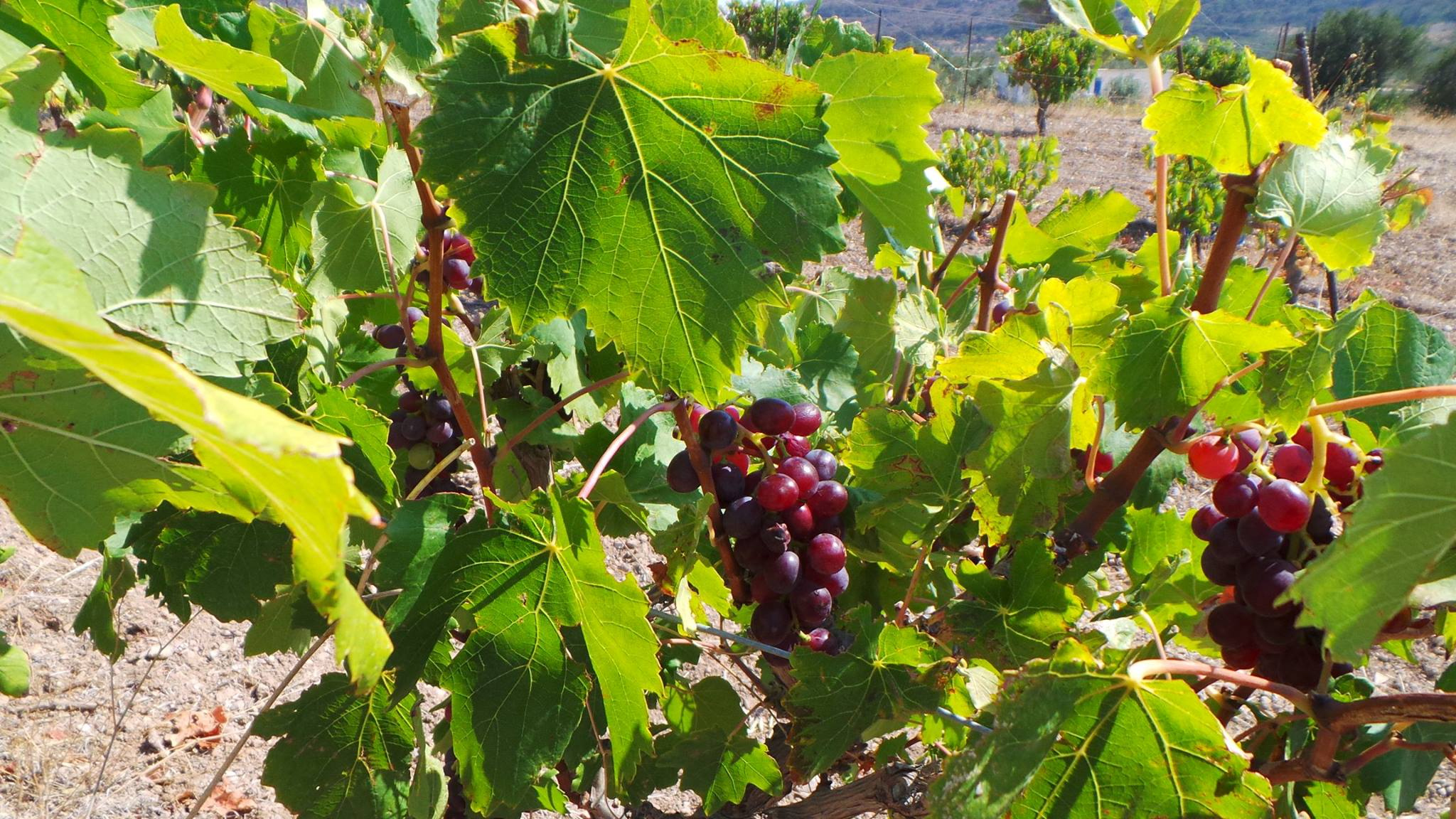
The wine made in Kythera is mostly for local consumption as production is not very extensive. Two main varieties of grapes are grown: “aricaras”, a red grape, and “petrolanos”, a white grape that gives wine a very enjoyable aroma. Other varieties grown include “tokoumaki” and “roditis”. A local brandy is produced from grape pomace called “tsipoura” (a sort of raki) that is of very good quality and serves as Kythera’s traditional drink.
Bee-keeping
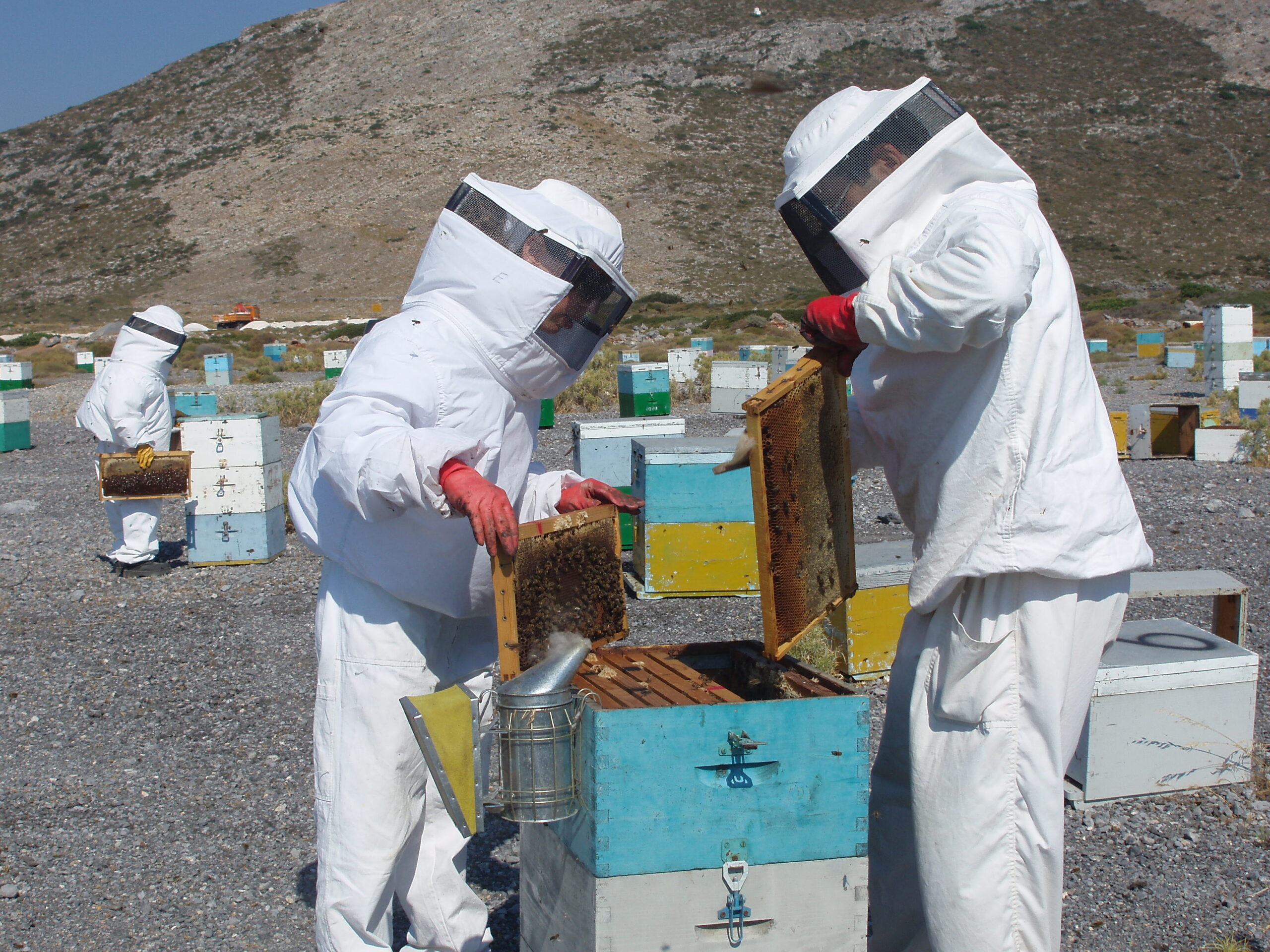
Kythera’s honey is the island’s best-known product, as warranted by its quality. Thyme is abundant on the island and is the bee’s main food, giving the honey a very specific taste. It was probably the Minoans who first taught bee-keeping to the Kytherean people. There is a second variety of honey produced in Kythera called Erica (white heath) whose nectar is collected by the bees.
Agricultural Products
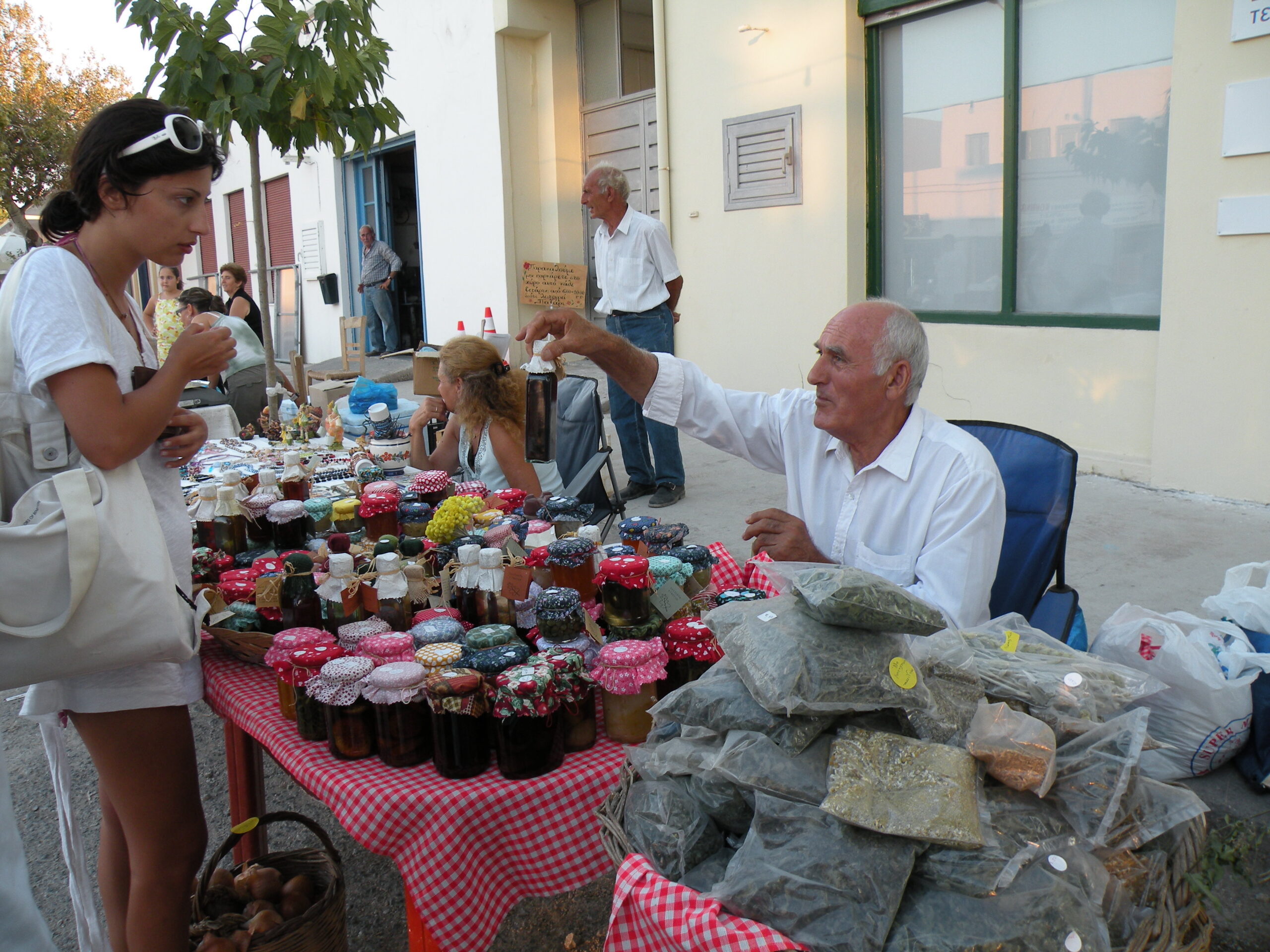
The island produces a large number of products that supply local markets. Over the past few years exports of certain products have been on the rise, such as oil, honey, etc. Kythera’s Melba toast is produced from cereals and is one of the island’s best-known products throughout Greece. Dairy products include fresh milk, acid milk (as a refreshing beverage), butter, and cheeses such as kefalotyri, myzithra and anthotyro. Small quantities of wool are also produced. Meat varieties available in Kythera include beef, pork, mutton, goat, wild goat, chicken, duck, turkey and guinea fowl. However, quantities produced in Kythera are lower than what is consumed and imports help meet the additional demand. Kythera also produces all sorts of noodles, including a sort of trahana (wheat-based noodle soup), chylopites (small square-shaped noodles) and others. Salt is also produced here as there are many salt marshes throughout the island, such as the one in Avlemonas. A number of inhabitants use salt to preserve small fish, and several restaurants and taverns offer salted fish. Local aromatic plants marketed in Kythera include oregano, thyme and sage. And lastly, beverages produced include wine, tsipoura (a sort of raki) as well as various liquors. The best-known liquor is the Fatourada.
Fruits and arboreal varieties
Almonds, nuts, bitter oranges, oranges, tangerines, apples, yellow cherry-plums (a local variety called « Aphrodite’s nipples »), various types of pears (buttered pear, kontula, black pears and other), figs and prickly pears.
Vegetable Garden
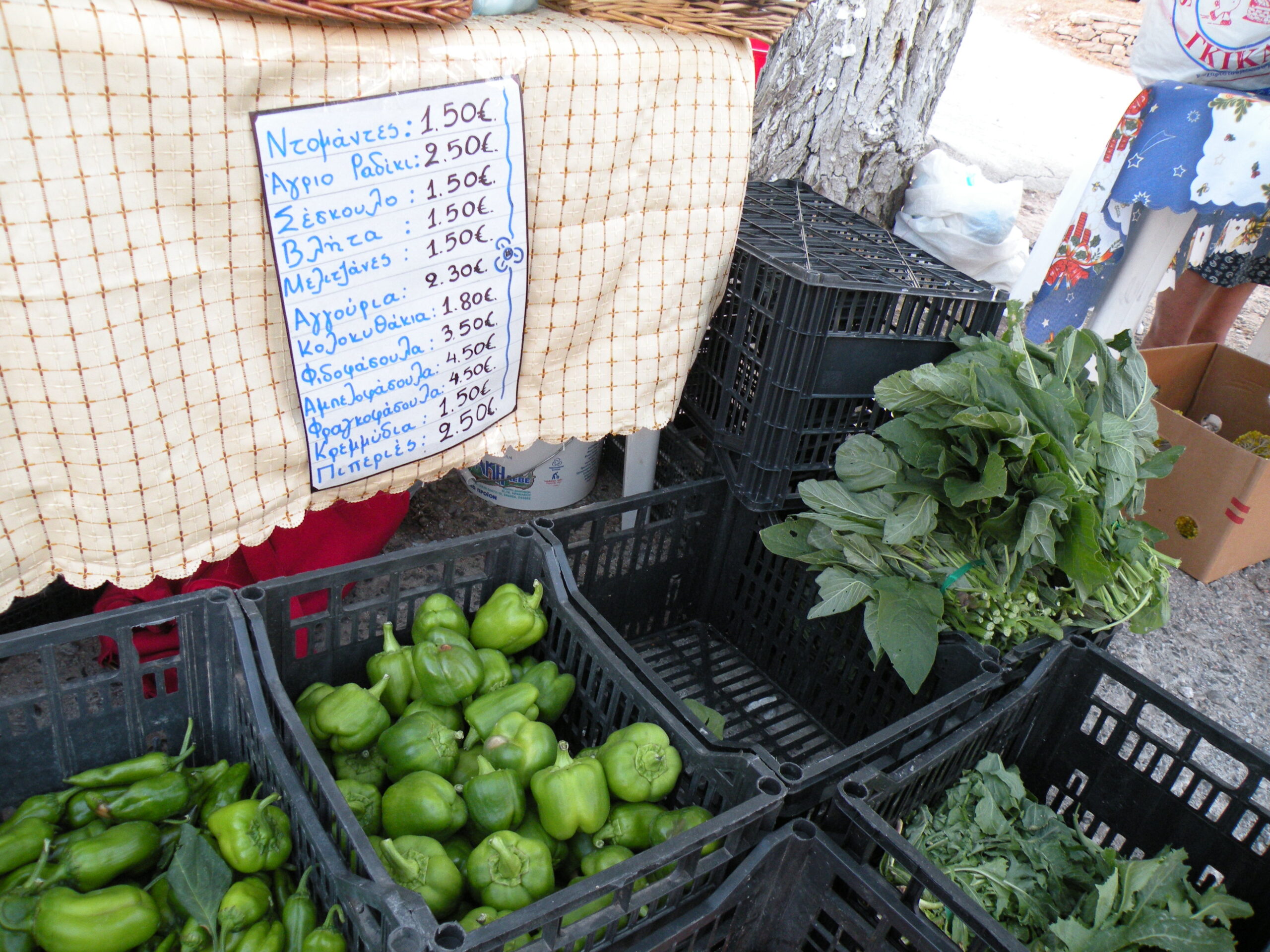
Cauliflower, cabbage, vlita (edible herb), zucchinis, potatoes, tomatoes, eggplants, okra, cucumbers, melons, beans, fava beans, lentils, chickpeas, onions and peppers.
